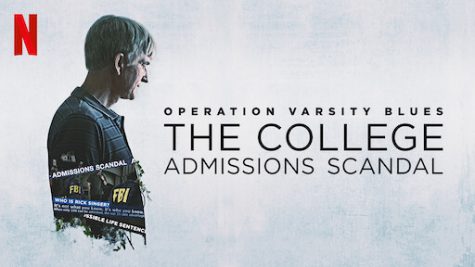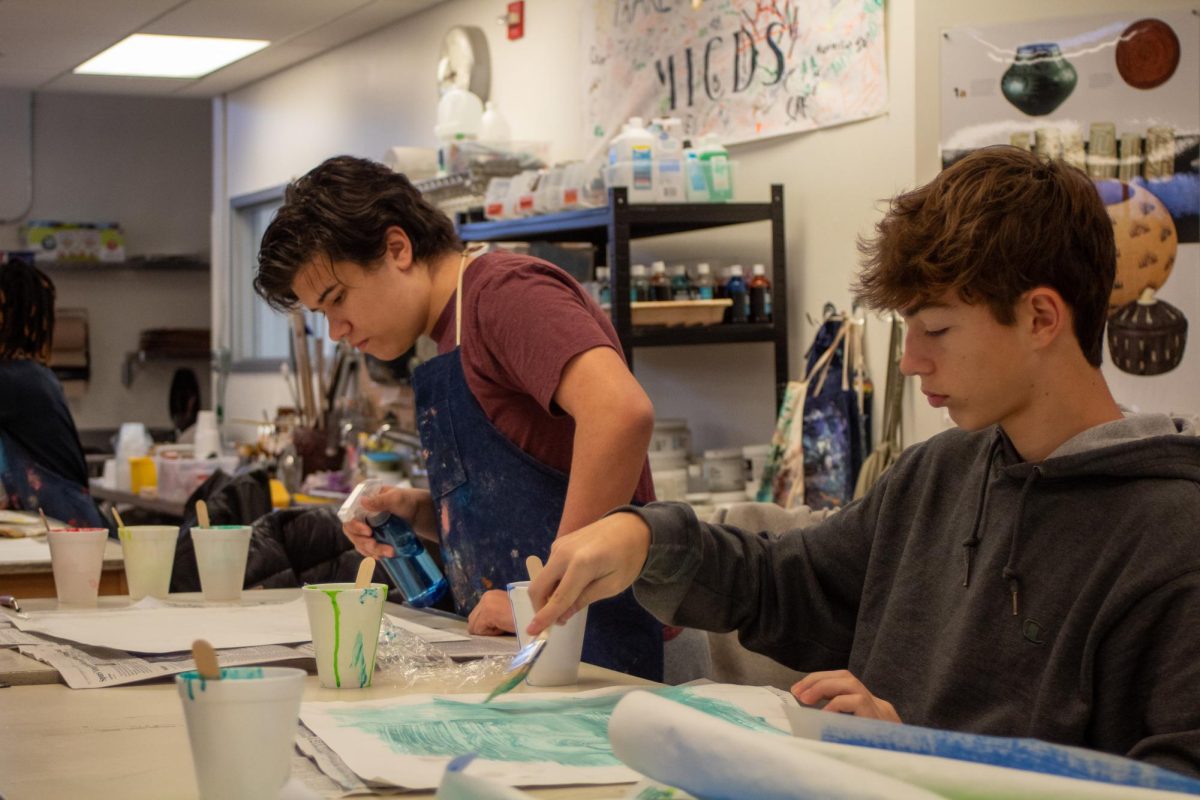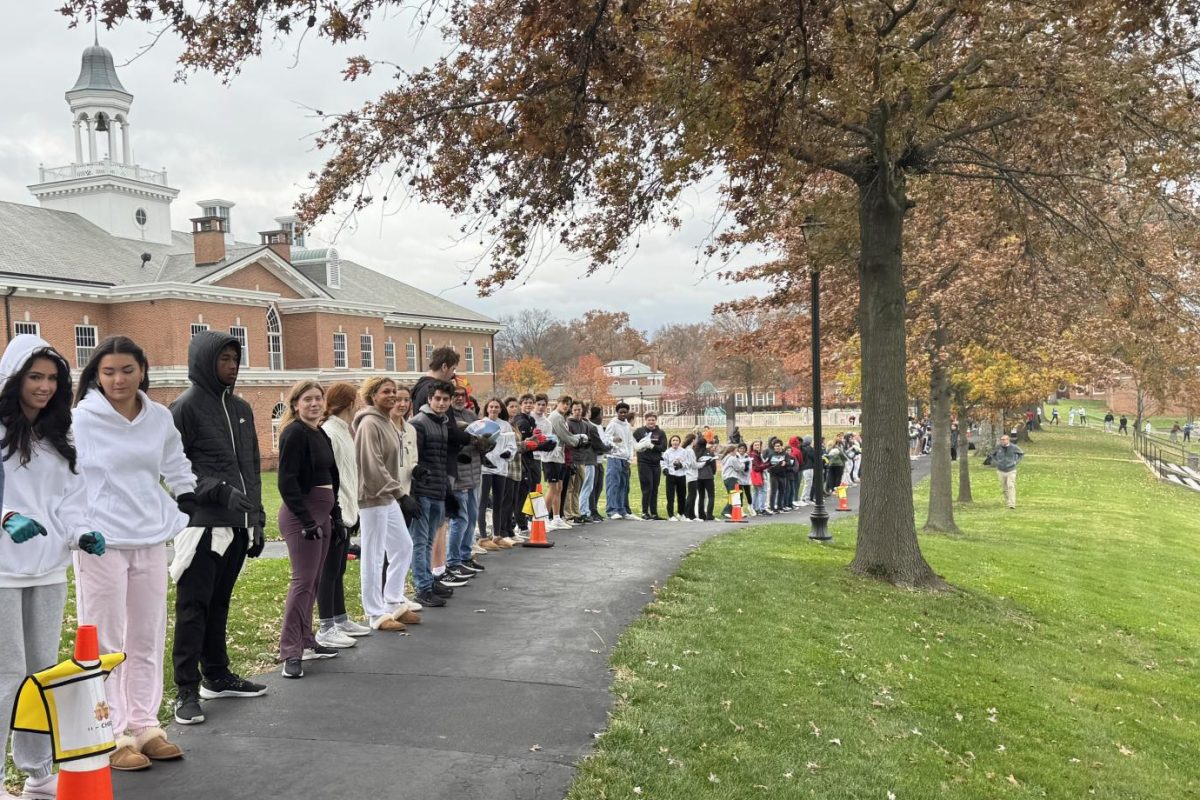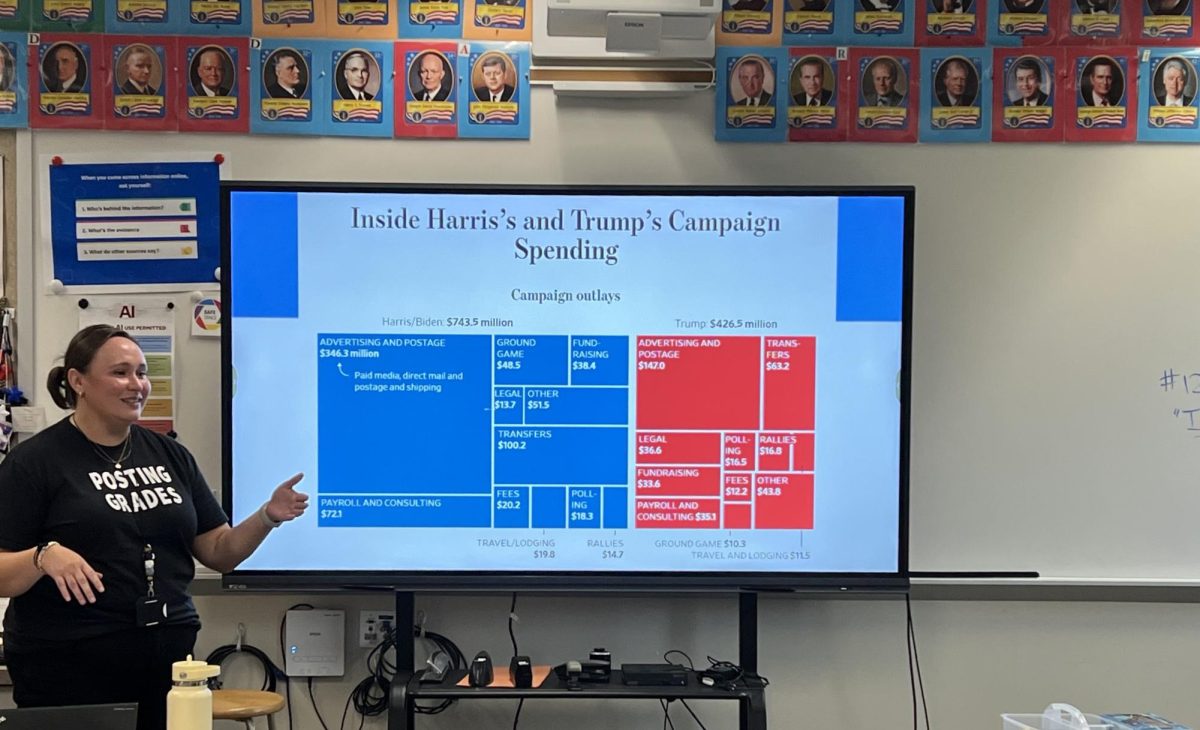College Admissions: Social Pressure and Threat to Wellbeing
May 20, 2022
For many American students, the college admissions process is seen as the pinnacle of their academic careers. It is a commonly held belief that the prestige of the college one attends is reflective of overall success in school, predictive of success–narrowly defined by wealth and employment position–in life.
When MICDS college counselor, Mrs. Wildman, was asked whether where one goes to college predicts future success, she responded “No, I do not believe so. Every college offers students opportunities to achieve great academic success, take part in a variety of extracurricular experiences, and the ability to explore future professions both in the classroom and through the connections that are made with the faculty and alumni. To best take advantage of what the college years offer, students must be open to new experiences and new avenues for achievement. With a positive, growth attitude, any college will offer a multitude of pathways to success.”
In a recent poll of MICDS 12th grade students, who have just gone through the college decision process themselves, 38.5% said that acceptance rate was the most important factor in determining their opinion of the value of a college. This was followed by 20.5% who responded that national and state rankings were the most important, and 15.4% who responded that student-written reviews on sites like Niche were the most telling.
Continuing, social approval also played a significant role in seniors’ selection of a college. 56.4% agreed that parental approval was “very important” in their decision, and 30.8% said that it was “somewhat important.” Therefore, 85.4% of seniors agreed that parental approval played some role in their college search and subsequent decision.
When asked about peer approval, 5.1% said that it was “very important, and 38.5% responded that it was “somewhat important” in their decision, for a combined 43.6% who agreed that what their peers thought about their schools mattered in some regard.
While the ultimate decision about which college one will attend is the applicant’s, this data shows that there are several parties that play into one’s choice of where to attend.
More specifically, reputation matters. People want to feel proud of their schools, which is based largely off of selectivity in admissions and subsequent approval from parents and peers.
Sarah Anderson, a San Diego-based Life Coach for girl teens and founder of The Real Girl Lifestyle, explained that “as a Life Coach for Teens, I have worked with hundreds of high school girls during the college decision process. One of the current misconceptions I see is that young people are putting a larger focus on how their college choice will be perceived by their peers than by their actual experience. They can’t wait to do a social media post announcing where they are going to see the likes and comments. Unfortunately, this emphasis on perceived social recognition has left many students unprepared for their actual reality of their college choice. I also see students fixated on the college ranking. I have had clients say that they are ‘worthless’ if they don’t go to a top 50 school. Students literally get so attached to the ranking of a college, they actually don’t know anything else about the school.”
There exists in our society a great misunderstanding about college: many parents and teens define the college they attend as a direct reflection of their self-worth, in a culture that values academic and personal achievement over all else–including mental health, a healthy work-life balance, and a wider definition of success and happiness.
In his Ted Talk about the science behind happiness, psychologist Dan Gilbert explained the importance of synthetic happiness, which is the happiness that we create even when things don’t always work out how we would like. It is the happiness former Beatles drummer Pete Best experienced when he left the band before it reached peak success, saying “I’m happier than I would have been with the Beatles.”
Studies support that synthetic happiness is just as valuable as the natural happiness that comes from when we do get what we want. It is rumination and regret that cause the most unhappiness. Dr. Gilbert explained that “yes, some things are better than others. We should have preferences that lead us into one future over another. But when those preferences drive us too hard and too fast because we have overrated the difference between these futures, we are at risk.”
This suggests that when selecting a college, we place too much emphasis on how different schools will lead to dramatically different outcomes in happiness and success. In reality, what one gets out of college is more dependent on the individual in question, rather than the college they choose to attend. Ambitious, persevering students who prioritize meeting with professors during office hours and pursue meaningful internship opportunities will most likely succeed no matter what their environment is, while unmotivated students will likely fall behind in coursework regardless of their school.
However, there is also a misconception that one type of student is better than the other. In a holistic review, what an individual wants out of their college experience is totally unique to them. Some students might be totally motivated by grades and employment opportunities, while others are more drawn to social activities, and many more fall along the wide spectrum between these two polar ends of the spectrum.
Success and happiness do not have the same definitions to every person, and it is important to note this in the college search process.
Sarah Anderson expressed that “I would love to see more high school students take a holistic approach in making their college choice. This would include taking time to do a personal inventory of what is truly important to them, what they value, and what they want their college experience to be like. Essentially, put blinders on to the outside pressures and lean into the intrinsic motivation for any schools they want to apply to.”
Still, parents go to extremes to ensure their children’s entry into the most selective schools. Besides sacrificing time, energy, and balance to pursue intense standardized testing preparation, outside-of-school college counselors to assist in application essay writing, and more, we come across cases of scandal, as was documented in Netflix’s Operation Varsity Blues. It is so important to som e parents that their child attend a certain school that they pay millions of dollars to get their kid in “through the side door.”
e parents that their child attend a certain school that they pay millions of dollars to get their kid in “through the side door.”
Of course, this is not only unfair to the other applicants on a moral level, and unfair on a socioeconomic level, but it is also unfair to the kid themselves, who got into their school not on qualifications or merit, but from large donations and fees paid to people who orchestrate listing them as part of a sports team they’re not actually on in order to guarantee admission.
It has been largely found that parental actions thought to be “helpful” by setting their child up for a bright future, actually harms that kid’s confidence in their own abilities and hinders their happiness. This short-sighted, desperate push to get their kid into the top school forces that kid into an environment they may not even choose for themselves. Either way, the toxicity of parental competitiveness in the college admissions process far outweighs the benefits of going to a school with big name recognition.
Sarah Anderson emphasized this point, saying “I think that parents are currently way too involved in the college application process. I remind parents that they are there to “guide” and “support” their child in their choices–not to “steer the boat” and “control” their decisions. The irony is that one of the main purposes of going to college is to gain more independence and so many teens are utterly unprepared for that because of helicopter parenting. I remind parents to encourage their kids to take ownership in the college process.”
Dan Gilbert explained the danger of an unhealthy focus on achievement above all else, saying, “when our ambition is bounded, it leads us to work joyfully. When our ambition is unbounded, it leads us to lie, to cheat, to steal, to hurt others, to sacrifice things of real value. When our fears are bounded, we’re prudent, we’re cautious, we’re thoughtful. When our fears are unbounded and overblown, we’re reckless, and we’re cowardly.”
This is reflected in the college admissions scandals because the importance of attending the right school is so overvalued that it pushes families to act unethically.
In this age of exceptionalism where everyone feels a deep need for achievement, it becomes dangerously easy to abandon morals and mental health. When students feel they are falling short of impossibly high expectations placed on them by external forces like parents and other important figures, they can become predisposed to anxiety and depressive disorders, eating disorders, and even self-harm.
In a college admissions year with record applications and acceptance rates, Dr. Kenneth Ginsburg, adolescent medicine specialist at Children’s Hospital of Philadelphia and author of books on teenage stress and resiliency for the American Academy of Pediatrics explained in a New York Times article that “If success is defined very narrowly, such as a fat envelope from a specific college, then many kids end up feeling like a failure.”
Dr. Pope of Stanford University’s education program called Challenge Success added that “College admission is how a lot of people are defining success these days. We want to challenge people to achieve the healthier form of success, which is about character, well-being, physical and mental health and true engagement with learning.”
Overall, the college process should be based around the specific wants and needs of each student, instead of the perceived prestige of one school over another. In the long run, success is dependent on student initiative and ability to advocate for oneself, not the school they attend.
Parents are also encouraged to let their children find what interests and fulfills them, instead of what merely grants them bragging rights of going to an exclusive school. This will shape what makes them happy, and thus successful and well-balanced instead of leading to emotional and academic burnout.
Lastly, colleges are called upon to be more ethical in their selection process, encouraging a more holistic approach. This has begun with many schools opting out of required test scores, but there is still a long way to go to ensure that the selection process is as fair and geared towards the best interest of the students.






















